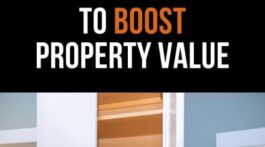Tips to Save Money For Buying a House
Are you wondering the best way to save money for buying a home? The secret to saving money for a home has nothing to do with real estate. In fact, it is about your credit cards! If you are interested in saving some cold hard cash for a house purchase, listen up!
For nearly three decades, I’ve been a CPA and financial counselor. I’ve written two books and been interviewed by all the major networks and national newspapers. Yet, I’ve failed miserably in a crucial aspect of my job: Convincing Americans to get out of credit card debt before they get into a new home.
Buying a home when you’re carrying steep balances on your credit cards is like trying to get in shape by jogging – while smoking two packs of cigarettes a day. You might think you’re making progress, but you’re actually not.
Here’s the problem: Credit card interest rates can easily top 20 percent. (As I write this, the average rate for new offers is around 18 percent. Remember, that’s the average, so many cards charge more.)
That means you’re paying $1 to your credit card company for every $5 you’re paying toward your debt. What a waste of money that could be going to your new house. Using your credit cards wisely is a significant factor in staying out of debt, building your credit score, and ultimately getting the best mortgage terms and conditions for buying a home.
Understanding APR to Save Money For a House
Before we talk about solving your credit card debt — and using that extra money for a new home — let me talk for a moment about “annual interest rate,” or APR. Why? Because it’s an important number for both credit cards and homes.
APR is the interest rate applied over a one-year period. It basically represents the total yearly cost of using credit. So understanding your credit card APR is like training wheels for understanding your mortgage APR — because your mortgage is much more complicated.
(APR with your mortgage includes things like points, broker fees, PMI, and some closing costs. If you’re confused, here’s the best explanation of APR you’ll likely find.)
If you can understand how your credit card APR works, you’ll be on your way to understanding how it works for a home. And knowledge is not only power, it’s savings.
Using Credit cards to Pay For a Home
So let’s revisit my premise: Getting out of credit card debt will add thousands of dollars to your home-buying budget.
Right now, the average U.S. family owns $6,270 on its credit cards, according to recent reports. If you’re near or above that average, calculate the APR on your credit cards. You’ll probably find you’re wasting hundreds or even thousands of dollars each year.
Of course, no one wants to be in deep credit card debt. But getting out of that debt and rolling over those interest payments into a savings account for a home is easier said than done. If it was easy to get out of credit card debt, then 40 percent of all American adults wouldn’t be suffering from it.
Your credit scores will also deeply impact your ability to buy a home along with the mortgage terms and conditions you’ll receive from the lender. You literally could be paying thousands of dollars more for a home with higher interest rates.
The best way out? Get someone to help you.
Credit Counseling
Before you learn the best way to get out of credit debt for you — and there are many options — you need to know the full extent of the problem. A credit counselor can help. For free.
Credit counseling is perhaps the most ignored amazing service there is. Credit counseling agencies are nonprofits, and the best ones have certified counselors who review your entire financial picture. Most often, those options can be a godsend towards saving money to buy a house.
Debt Consolidation
Debt consolidation is the short way of saying, “Let’s combine all my high-interest debts into one lower-interest debt, which means I’ll pay everything off a little quicker.” One tried-and-true method is to simply get a personal loan and use that to pay off your credit cards — because personal loan rates are usually much lower. Learn about debt consolidation for every kind of debt.
Debt Management
If your credit card balances are too steep and your credit score is too low, debt consolidation might not work for you. A debt management plan (also known as a DMP) might be a better fit.
A DMP almost sounds too good to be true: Credit card companies work with nonprofit credit counseling agencies to reduce your interest rates and freeze your late fees. You can save 30 or even 50 percent.
Why would heartless credit card companies do this? Because it’s not in their best interest to lose customers who can’t ever climb out of debt. Also, it’s not a good look. Most companies care about their public image. Learn more about using a debt management program. Doing so will go a long way towards saving money for a home.
Other Debt Removal Solutions
I’m not going to delve into debt settlement or bankruptcy, which are more extreme ways of getting out of credit card debt. Why? Because if you want to buy a home, you don’t want a hit on your credit score. Other methods will drag down your score for a while, although under certain circumstances, it might be better to take the hit now so you can reap the rewards later.
If that sounds vague, it’s because everyone’s situation is different. Learn more about how to get out of credit card debt, then consult Debt.com. We can introduce you to the veteran experts who can get you square with your credit cards so you can look around for a new home.
Final Thoughts on Saving Money For a Home Purchase
There are a number of key financial factors when you’re going to be buying a home. Some of the things you need to be striving for are a healthy credit score, a decent down payment, and funds in reserve for emergencies or other unexpected events. Getting your financial house in order well before starting to look at homes is a wise business decision.
Working on your credit card debt is a great place to start. It is one of the more significant things that hold many folks back financially.
About the author: The above article on how to save money for a home was written by Howard S Dvorkin. Howard is a serial entrepreneur, author, personal finance expert on the Forbes Financial Council and the Chairman of Debt.com.














No Comment